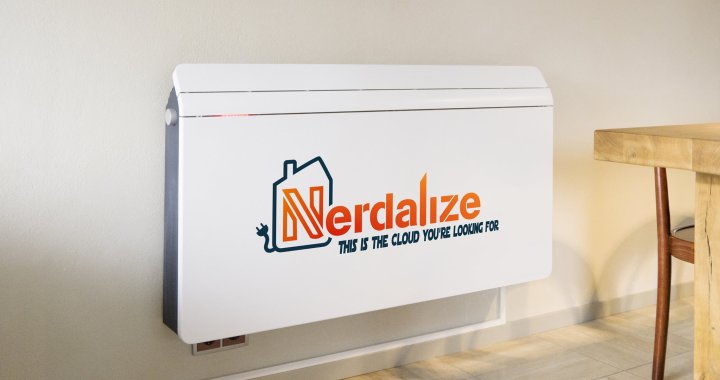
In an effort to ensure that our future is sustainable, one Dutch company is looking to turn servers into heat sources. Because if you’re running laptop is enough to warm your lap on a cold winter’s day, then shouldn’t servers (which emit a lot more energy in the form of heat) be enough to heat your home? That’s certainly the bet that Nerdalize is making. The startup hopes to “create free heat for everyone and make cloud computing sustainable and affordable.”
Its method? Placing cloud servers in individual homes, and turning them into heating systems. Your house will serve as a data center for companies that depend on cloud computing (which is to say, all companies), and in return, those companies will effectively provide you with heat and hot water.
It’s the 21st-century definition of symbiosis.
Nerdalize estimates that by turning common homes into data centers, homeowners can save up to $340 a year, while companies can forego the cost of expensive server centers, saving about 50 percent of their own operational costs. “This innovative set-up drastically reduces the household’s energy consumption while slashing the energy originally needed for server cooling,” Nerdalize claims. “Adding up all those free hot showers and avoided cooling, we can save up to three tons of CO2 per household per year.”
The plan is to start installing these servers in Dutch homes in August. 42 households will serve as guinea pigs, and if all goes well, they’ll be able to turn corporate data into hot water. Indeed, the company says, demand appears to be quite high for this innovative technology, as more than 3,500 people have signed up and expressed interest in a server heater.
The company has already hit 130 percent of its 250,000-euro ($282,000) funding goal, so if you’re looking for an alternative heat source, you may just want to look toward a server.


